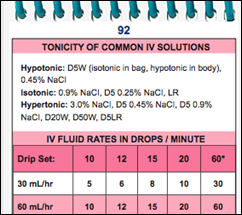The New Yorker cartoon of Readers Write articles.
News 8/5/09
From Sweet Duck: “Re: Philips. Starting RIF this week. Some will be notified this week, most next week.”
From Former Misys: “Re: interesting lawsuit.” It’s the usual securities fraud lawsuit that inevitably results when share price drops even temporarily, one of many filed by “corporate wrongoing” attorneys Izard Nobel LLP, this time against Allscripts. Another was filed against Allscripts by fellow corporate heel-nippers CSGRR, which has filed hundreds of similar suits (I’m not kidding – I broke out of their Web page navigation structure to get this folder of suits filed, of which company names starting with A alone take up three pages). I get several of the class action notices every month for one company or another since my IRA is in a “wrap fund” that trades a lot, but I thrown them straight to the trash unopened because I’ve long since learned that (as in life in general) the only benefit invariably accrues to the lawyers on both sides.
From The PACS Designer: “Re: Scribd. Another collaboration Web site you might want to checkout is Scribd. It’s a place to form a group to discuss a specific subject or event. TPD came across this site when viewing a cloud computing use cases white paper, and the open cloud manifesto (OCM) website, which also may be of interest to HIStalkers.”

From Bob in Accounting: “Re: Huron Consulting Group. Wow.” Shares of Chicago-based Huron Consulting Group dropped 75% on Monday after an audit uncovered what looks like suspicious accounting, the company announced it will restate three years’ of results, and most of the company’s executive team resigned (Holy HBOC, Batman!). They did a bunch of healthcare acquisitions over the years: Spelz & Weis, Wellspring Partners, Aegis Advisers, and Stockamp. Huron was founded by a bunch of former consultants from Arthur Andersen, the scumbag, fee-obsessed company that let Enron and HBOC happen as their see-no-evil auditors. I know there are at least a couple of folks who work there who read HIStalk, so hang in there. The sins of the suits usually hit the peons hardest.
Speaking of Huron, here’s an ironic story lead from a 2004 WSJ: “Down the road and across the river from Arthur Andersen LLP’s old 28-story headquarters in Chicago, a firm set up by some of its former employees is hoping to become a beneficiary of the spate of accounting scandals that helped cause the collapse of the once-venerable audit firm. Huron Consulting Group Inc., a financial and legal advisory firm founded by former Andersen partners during the company’s death spiral in 2002, is set to go public with a $115 million stock offering by the end of the year. Its specialties include "forensic" examinations of companies with accounting blowups. That is, its consultants drill deep into particular accounting areas to figure out what went wrong, often working with audit committees and their law firms.” If they were Andersen, they would hire themselves as external auditors.
From Kit Kittredge: “Re: Todd Park as HHS CTO. What do you think about that?” Brilliant, although I’m shocked that they could get him since he doesn’t need the paycheck and seemed to be enjoying semi-retirement and starting up Maria Health (apparently now Ventana). I’m surprised HHS went outside the usually bureaucrat farm system to get someone so notable from private industry, especially since athenahealth is about as opposite as you can get from the COBOL-loving civil servants unimaginatively carrying out tedious political decrees involving the most arcane and mind-numbing financial transactions. You have to admire him for giving up cushy family time to get into a government grind with little to gain in money or reputation, knowing that entrepreneurs don’t easily morph into DC lifers. I e-mailed him today and he promises to interview here again once he’s settled in.
Speaking of Todd Park, ABC News e-mailed after finding his interview here, asking to use the picture I had run (which came from athenahealth, who gave their OK to them, which I now see has been picked up by Modern Healthcare). I see they are running it now in a story quoting a watchdog group’s spokesperson as saying TP “played the campaign finance system well” in donating to Obama’s campaign and expressing concern that his recusal on issues germane to athenahealth would hinder his effectiveness. I’d strongly disagree on the former: you’d have to be an incredibly idealistic multi-millionaire to want a wonky beltway CTO job, so I’m pretty sure he’d otherwise have rather have kept his ATHN shares. On the latter issue, I suppose it’s a theoretical risk, but since he has to sell his shares and give up his board position, he wouldn’t have much motivation. I’d rather have this situation than the ever-present ones where influential public servants quit to sell their influence to the private companies they formerly regulated.
Fred e-mailed the Allscripts internal e-mail announcing that field engineering services will be outsourced to DecisionOne in October. “DecisionOne is the right partner because they are expert at hardware installation and repair and have been in this business for the past 50 years. They have high standards and their employees will be trained and certified to the same standards as our employees. More importantly, they are committed to retaining the majority of our employees.” Sounds like a win all around, although hiring on with a new outsourcer is always traumatic for the affected employees (hopefully Allscripts put in the contract that nobody gets let go for some period of time). Outsourcing non-core business under carefully defined terms often works well.
A reader sent over the Boston Business Journal article featuring eClinicalWorks President Girish Kumar Navani, who founded the company with his brother-in-law and cousin, all three of whom live in houses next door to each other. Doing EMRs was their third idea after a golf course tee time app and a hotel reservation system. I like it that he’s cheap like me: the article mentions that he didn’t like the $90 walk-up rate he was quoted at a rental car counter, so he whipped out his laptop and made an online reservation for a $19.95 rate.
And I swear this is coincidental because I forgot to mention it Saturday until Inga reminded me: eClinicalWorks has signed on as Gold Sponsor of both HIStalk Practice and HIStalk, which I appreciate even more now that I know how much Girish hates wasting money. I was super impressed when I interviewed him in 2006 and 2008 because he seems like an absolute straight shooter whose physician practice systems were forcing dramatic changes in the EMR marketplace. He said the company was doing $60 million in revenue in the 2008 chat, but that BBJ article pegs it at $100 million now. He had this to say about the much-watched New York project: “New York is not just about implementing an EHR, it’s about demonstrating that you can improve quality of care. Then, it’s all about expanding that to connect into the local RHIOs. There’s another level and degree of integration that’s big in the city – connecting with their school health program, with their immunization registries. You’re now talking about a truly digital healthcare system.” I’m really honored that he always takes my calls and e-mails, like when he hastily arranged a telephone interview on his way to the airport the day news of the eCW-Sam’s Club distribution deal broke, allowing me to get the details to you just a couple of hours later and before anyone else. Thanks to eClinicalWorks.
Listening: Keane, sweeping pop-rock, mostly piano and soaring harmonies. If you’ve seen the gazillion ads for the final season of Monk, that’s their song Time to Go playing. Excellent all around.
We’re working on an interview with the CEO of the unnamed HIE vendor that has been the subject of reader speculation. If you have information or questions we can use, send them my way.
The RN Pocket Guide is offered as a $19.99 iPhone version. Nice.
Brigham and Women’s gets an $8 million research grant to strengthen Rwanda’s health centers, including expanding its EMR to cover all patients instead of just those with HIV/AIDS and TB.
I’m sure Kathleen Sebelius is relieved that HIMSS issued a press release supporting her HIPAA security enforcement responsibility change to the Office of Civil Rights, then pitching HIMSS products and its self-nominated involvement in CMS’s work just two paragraphs later.
NHIN vendor MEDNETWorld.com announces that it will offer the Voluntary Universal Healthcare Identifier from Global Patient Identifiers, Inc. (that’s former Gartner guy Barry Hieb and former HIMSS VP Liddy West).
eHealth Ontario makes headlines for financial excess again, although support or criticism seems to follow party lines. One SVP consultant was paid $58,000 plus another $10,000 in expenses for just 21 days of work, later upping the average to $76K per month and billing for his nightly glass of wine. The CEO and board chair stepped down in June over no-bid contracts, of which $16 million were issued. Courtyard Group got $10.5 million of those, billing several of its executives (some of them believed to have political connections) at $393 per hour.
This Information Week article says CIOs should embrace Twitter because it’s “driving significant business value” and not “solely the province of professional goofballs and teenagers.” Case in point: Mayo Clinic, which announced a disease study on Twitter, checked to see who re-Tweeted it, and then e-mailed some of those people copies of the embargoed study so they could blog about it.
RealMed is named the exclusive practice clearinghouse for Adventist Health System.
HERtalk by Inga
eHealth Ontario names its third new CEO in three months. Rob Devitt is stepping in until the end of the year as the board searches for a permanent CEO.
MedMatica Consulting Associates announces the availability of its HISAssist service line, which offers EMR implementation assistance such as go-live support, on-demand service desk support, and remote analyst and report writing assistance.
TrialX will release an iPhone application that gives doctors and patients the ability to search for various clinical trials. Could be cool to play with next time I’ve self-diagnosed myself with some life-threatening condition.
Durham, NC internist Esther E. Poza, MD joins TSI Healthcare as the company’s chief medical officer, tasked with leading the company’s efforts help physicians adopt EHRs.
The Hospital of Central Connecticut signs an agreement with AMICAS for its PACS, Reach, and RadStream solutions.
Merge Healthcare announces net income of $400,000 for the quarter ending June 30th. This compares to a $18.2 million loss during the same period last year. Second quarter 2009 revenues rose more than 15% to $15.4 million. Merge also announced a new contract with the Center for Diagnostic Imaging, a 51-center network based in Minneapolis. And, Allscripts selects Merge Healthcare’s Cedara WebAccess software application to “image enhance” Allscripts EHR solutions. The Cedara WebAccess portal will provide users a zero-footprint method of distributing medical images and reports.
MedAssets releases its second quarter 2009 earnings report, which included a 37.5% increase in net revenue over 2008. Total revenue was $84.2 million; net income was $2.2 million vs. last year’s $1.6 million loss.
Sac-Osage Hospital (MO) is likely not alone in its financial struggles or its desperate hope to win federal monies. The 47-bed facility, which bagged an 0.065 on the seven-point HIMSS Analytics EMRAM scale, is borrowing $1 million to purchase an EHR, apparently solely to hope to qualify for $3 million in ARRA funding. Says the CEO: “We wouldn’t have gone to an electronic health record at this point and time, because we just don’t have the cash to do it. We’re taking a risk that we’re going to be able to meet the criteria and get some of this stimulus money to help offset the cost … If that doesn’t happen, we’re shutting it down.”
A new KLAS report reiterates the struggles of small critical access hospitals wanting to adopt healthcare technology. Challenges include the limited number of vendors serving that market segment, inadequate functionality, and low CPOE adoption. Cost is also noted as a barrier.
Meanwhile, Randolph Medical Center (AL) completes an 18-month transition to Healthland EMR. To fund the project, the 25-bed hospital received a $1.2 million Critical Access Hospital Health Information Grant from HHS.
DOD introduces an online mental health system for its service members and their families. The TRICARE Assistance Program allows members and families speak via webcam with a licensed counselor at any time.
JPS Health Network (TX) anticipates a net loss in its new fiscal year, yet its proposed budget includes $152 million for an upgrade to existing computer technology. Adding a system-wide EHR accounts for $44 million of the budgeted funds.
An ultrasound tech from Jackson Memorial Healthcare (FL) pleads guilty to selling confidential medical information. The tech was paid $1,000 a month to capture details on patients involved in accidents, gunshot wounds, and stabbings. A third party then sold the information to a lawyer suspected of soliciting patients to file personal-injury claims. Details on at least 26 patients were compromised over a two-year period.
Despite of a weak economy (or because of it?) women continue to spend money on plastic surgery, particularly to enhance their professional marketability in a tight job market. In fact, the American Society of Plastic Surgeons finds that about 3% of working women have already undergone a cosmetic surgery they considered a career investment. Botox use was up 8% in 2008 and the use of hyaluronic acid was up 6%. The volume of tummy tucks and breast implants fell 9%, however. Draw your own conclusions.
I’m lobbying Mr. H to send me on assignment to do some investigative reporting. The Mexican government is offering free health insurance for tourists staying in city hotels. The plan will pay for medical care for any disease or accident, including ambulance service, hospital accommodations, prescriptions drugs, and emergency dental care. Sounds like a perfect time to visit if one needs emergency mammoplasty or the like. The offer comes on the heels of a 50% decline in tourism since the first outbreak of swine flu.







Regarding HIMSS support of Kathleen Sebelius’ HIPAA security enforcement responsibility, Mr. HIStalk must have cringed when he read the poorly-written press release. I find it difficult to understand why HIMSS would allow this press release to be posted before it was reviewed internally.
HIMSS refers to Ms. Sebelius as “THE Kathleen Sebelius” and that Sebelius “would improve inefficiencies in the department”. Is Gallagher saying that Ms. Sebelius wants to INCREASE inefficiencies within the department? Was this statement meant to embarrass Ms. Sebelius? Perhaps Ms. Gallagher meant “improve efficiences”?
Gallagher said “CMA and OCR oversaw the complaints”. Oversaw? Does she mean that they provided oversight?
Then there is “…will create operational efficiencies for HHS as it conducts rulemaking…” Conducts is wrong, “promulgates or redacts is correct. Also rulemaking is wrong, it should be policymaking. Rules or rule of law comes from the administration of policy.
There are so many poorly worded sentences in the press release that beg for clarification. And this is the organization that wants to set policy for the entire HIT industry?
Perhaps Carla Smith, Execuitive VP, who holds a Masters in Communications, should review each press release before it is posted, to avoid public embarrassment.
HIStalk, the link above appears to be dead for the HIMSS press release regarding HIMSS’ HIPAA compliance with OCR.
Interesting…that proves that HIMSS members, B.O.D. and executive staff all read your blog. I will try the link later tonight to see if the press release has been edited.
Keep up the good work!